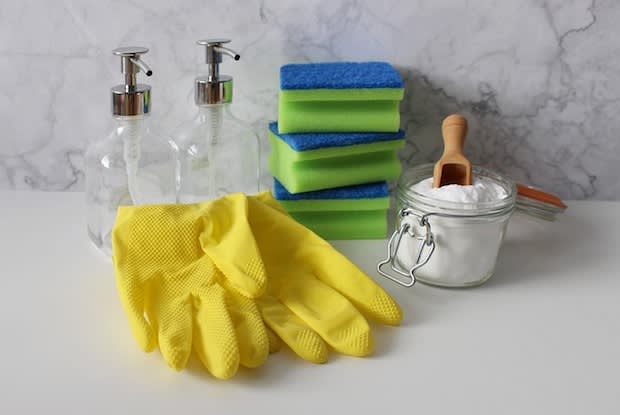Table of Contents
III. Keep Your Skin and Body Hydrated
IV. Pick Your Clothing Carefully
Understanding Eczema
Millions of people in the United States suffer from eczema. Many people grow out of it as they grow older, but eczema can be a chronic disorder that can be present throughout a person’s life. Certain irritants can trigger flare-ups of eczema. Common irritants can include allergens, soaps, and disinfectants. Triggers vary from person to person, so eczema-sufferers need to keep track of what factors or irritants cause skin irritation and avoid them.
The persistent itching of eczema can make this skin condition feel impossible to control. The itch-scratch cycle of eczema is a challenging battle to win without medications like Elidel Cream or Neoral (cyclosporine). These medications can help with eczema symptoms, including itching, redness, swelling, scabbing skin, and sometimes skin infections. The mental toll of eczema can be just as exhausting as the physical toll. These symptoms can become severe, so eczema-sufferers must learn how to get control of this skin disorder. Read on to learn more about tips on how to better control your eczema condition. [1]

Make a List
As mentioned above, eczema is triggered by different things in every person. The diagnosis of eczema can be difficult because the symptoms are indicative of several other skin conditions. There are few definitive tests to diagnose eczema properly. A doctor diagnoses eczema through a careful examination of a person’s symptoms and their family medical history. Those who have a family member with allergies, asthma, and hay fever are more likely to develop eczema.
Because eczema diagnosis is symptom-based, your doctor will often recommend that you keep a detailed list of your symptoms and occur. For example, if eczema symptoms occur after using a certain fragrance, you may need to stop using it. A doctor may perform some blood tests to rule out the presence of any other skin conditions, like psoriasis. Along with irritants, eczema can occur because of stressful situations. If you notice a pattern of stress-related eczema, you may want to cut out any distressing activities. [2]
Keep Your Skin and Body Hydrated
Staying hydrated is important for everyone, but it can make a huge difference for those with eczema. Drinking lots of water not only replenishes your internal organs, but water affects the skin as well. The body needs to be as healthy as possible to deal with a compromised skin barrier condition like eczema. Drinking lots of water allows the liver to flush out toxins and supply the body with the moisture it needs. As water flows through the body, it eventually works to hydrate skin cells, promoting skin health. Hydrating skin cells can help repair the broken skin barrier. [3]
Drinking water is good, but you may need a bit more moisture in the case of eczema. If your skin becomes too dry, it can become itchy and rough. If the skin dries, cracks can appear and allow more allergens and bacteria inside. Dry skin is a common cause of eczema flare-ups as well as extreme changes in temperature. To avoid these symptoms, apply lotion when you get out of the shower and reapply throughout the day if your skin begins to feel dry. This routine is especially important in dry seasons like winter. [2] Many of us buy clothes without paying much attention to the labels. Those with eczema should pay special attention to clothes labels to make sure the fabrics will interact well with their skin. Fabrics that are rough, too tight, or itchy can trigger eczema symptoms. Synthetic clothing materials like polyester can also worsen your eczema symptoms. When buying clothes, look for breathable fabrics like cotton. Soft clothes that are gentle on the skin can help keep the body cool and prevent sweating and irritation. Pay attention to any fabrics that have bothered you in the past, like wool, and avoid them whenever possible. Wearing loose clothes is also beneficial so that fabrics don’t rub too closely on the skin. [2] Because eczema is closely related to allergens, it is good to keep your house as allergen-free as possible. It is especially helpful to do a deep cleaning of your living space in the spring when allergies are in full swing. Many people think of their home as a safe place away from the outdoor allergens, but eczema triggers can lurk in nooks and crannies in your own home. Mold, dust, and pet dander can significantly contribute to eczema symptoms. If you suffer from eczema, it can help you establish a weekly cleaning routine to keep allergies at bay. Giving the house a good scrub down once a week can prevent the buildup of irritating dust mites. Once a month, you should try to clean the harder reach places like the tops of doors, windowsills, ceiling fans, crown molding, underneath furniture, and behind toilets. Wearing rubber gloves and a mask can also prevent irritation while cleaning. Keeping the humidity down in your house can also prevent the formation of bacteria and mold. [4] Eczema is more common in childhood, but it can occur at any age. Many people can live their whole life before experiencing painful itchy and scratchy symptoms of eczema. If eczema occurs suddenly, it is essential to examine any changes in your living conditions or habits. For many people, these symptoms can be precipitated by a new pet or move. If you recently adopted an animal, your eczema may be caused by pet dander (dead skin cells). This is a common allergy. Those with an overactive immune system can react negatively to the normally harmless proteins in the pet’s sweat, saliva, and dander. [1] Along with pet dander, other household inhabitants may also contribute to eczema symptoms. Rats, mice, and cockroaches are known to trigger eczema. They may be small, but their hair, dander, saliva, and droppings can set off allergies. Researchers have found a strong correlation between the onset of asthma with the presence of cockroaches in the house. If you are experiencing an infestation of these creatures, you can buy inexpensive traps or hire professionals. You should also thoroughly vacuum the carpet, disinfect surfaces, and seal up any cracks in entryways. [4] The content in this article is intended for informational purposes only. This website does not provide medical advice. In all circumstances, you should always seek the advice of your physician and/or other qualified health professionals(s) for drug, medical condition, or treatment advice. The content provided on this website is not a substitute for professional medical advice, diagnosis or treatment.
Pick Your Clothing Carefully
Keep a Tidy Home

Pet Dander and Pests
